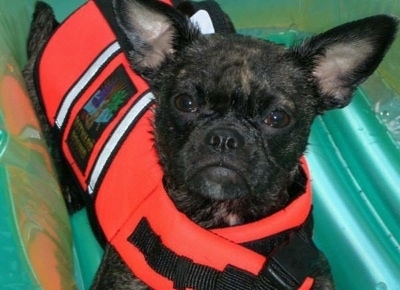Mrs. Tom Brady

click here for more pics:
http://www.totallycrap.com/galleries/galleries_gisele_bundchen/
Adding Value To The World, one Post At A Time

click here for more pics:
http://www.totallycrap.com/galleries/galleries_gisele_bundchen/
Posted by gjblass at 4:14 PM 0 comments
Forget Jay Leno, Jerry Seinfeld or even Tim Allen. It looks like Adam Carolla, formerly of Loveline and The Man Show is adding Top Gear to his list of new projects.
Last Friday, on his nationally syndicated radio show, Carolla hesitantly answered a fan's question during his "How Say You?" segment, announcing that he'd be working on the U.S. version of Top Gear. Carolla describes the show as "a super cool, super-expensive, super high-end car nut show to air on NBC primetime." Shortly after his announcement, Internet message boards showed mixed reaction to the news.
There's been no official word yet from NBC on any of the show's hosts; however, our sources say that Dan Neil, a Pulitzer Prize-winning automotive writer for the Los Angeles Times, will also be part of the show, most likely to add journalistic integrity.
Carolla, known as the Ace Man to his radio fans, is considered by many to be a celebrity car guy. He owns a replica BRE Datsun 510, has competed in the Toyota Pro/Celebrity Race in Long Beach and recently broadcasted a NASCAR weekend radio show from the Palms in Las Vegas.
Clearly, Carolla is into cars, but is there room for Top Gear on his already full plate? Here's a breakdown of some his other current projects:
Posted by Chismillionaire at 4:06 PM 0 comments
Couldn't help but think of this scene while watching. When Seagal was a bad ass (for a short period)...
Posted by Gary at 3:50 PM 2 comments
Planning my trip to Europe Next year. Thanks to Jack Reno, for some suggestions:
chekc these out:
http://www.salzwelten.at/cont/salzwelten/en_salzwelten_home.aspx
http://www.eisriesenwelt.at/site/content/CB_ContentShow.php?coType=photos#
Posted by gjblass at 3:13 PM 0 comments
Holy Crap!
Posted by Chismillionaire at 2:53 PM 0 comments
U.S. Business
Europe
Asia
World News
Economy
Politics & Policy
Campaign 2008
Earnings
Health
Law
Media & Marketing
News by Industry
Columnists
Sawdust Shock: A Shortage Looms As Economy Slows
By Joel Millman
Word Count: 1,206
Ernie Johnson figured $100-a-barrel oil was bound to happen someday. But the 58-year-old businessman Missoula, Mont., never thought he'd see sawdust at $100 a ton.
The price of sawdust has soared since 2006, up from about $25 a ton to more than $100 in some markets. Blame the housing slump: Fewer new homes mean fewer trees cut for use in construction, which leads to less sawdust and other wood waste, driving up the price.
"I've never seen sawdust so hard to find. We're having to go 400 miles to get it," says Mr. Johnson, the president of Johnson Brothers Contracting, ...
Posted by Chismillionaire at 2:31 PM 0 comments
"Maceration" may sound like some crazy combat maneuver, but it's really what happens when a flavor is steeped into a fluid. If you're using the process to add flavor to your vodka, it's given the much cooler moniker of "infusion." Vodka distillers have caught onto the craze, but for the most part they've stuck to common flavors like citrus. But with a decent jar, some produce, and lots of vodka, anyone can create their own signature flavored spirit.
Contents[hide] |
Since there are a number of choices for flavor, there are tons of ways to prepare your fresh materials. If working with fruit, be sure to expose the flesh. This means slicing into things like melons and strawberries, removing the rinds of fruit like mangoes, and getting rid of any pits. The same type of rules apply for vegetables -- if the section in question doesn't harbor flavor, get rid of it. Once the unnecessary bits have been removed, cut your selection(s) into medium-sized sections. Think "fruit salad," not "puree."
Once the produce is prepared, it can go into the empty jar. If you've gone the spigot route, make sure the spigot is tightly closed. Traditional methods of infusion call for the jar to be filled (but not packed) with fruit/vegetables. Since that can turn out to be a sizable commitment to a whole lot of alcohol, it's advised to start with modest quantities.
Once you've added the desired amount of fruit, start dousing it with the desired amount of vodka. The goal is to make sure that your produce is covered (if not submerged) in vodka. Don't mind any floaters -- they're normal. Also keep in mind that the ratio of vodka to produce has a direct effect on flavor, so pour accordingly. When you've poured in the desired amount (or filled the jar), throw on the lid and make sure it's sealed tightly. Place the jar in the refrigerator, or in a cool, dark place. Direct sunlight can wreak all sorts of havoc, so keep it away from the sun at all costs.
This is the hardest part of the process -- waiting. Stronger flavors like citrus can be infused as quickly as couple days, while mellow flavors like water melon and apple can take a week. Really light flavors like cucumber and lavender can take as long as two weeks. Since preference plays a big part in the end result, it's wise to periodically taste the mixture to see where it's at. A day more (or less) won't likely ruin the mixture, and if you splurged on the jar with the spigot pouring the occasional 'test shot' shouldn't be a problem.
After the desired taste is reached, it's time to rid the vodka of the fruit/vegetable pulp. The easiest method is to line a wire mesh strainer with cheese cloth (coffee filters work too), set it on top of a bowl or pitcher, and then pour the contents of your infusion jar through. Once it has made its way through you can discard the pulp, and enjoy your infused vodka. Or, eat the vodka-flavored fruit instead of throwing it away.
This How-To was originally submitted by Wired.com writer Terrence Russell.
Posted by Chismillionaire at 12:26 PM 0 comments
 |
| Copying nature: A cross section of mother-of-pearl, or nacre, shows calcium carbonate platelets arranged in layers separated by a biopolymer (top). Researchers have mimicked nacre’s structure by dispersing aluminum oxide platelets in the biopolymer chitosan (bottom), which yields a nanocomposite that is strong, stretchy, and light. Credit: J. Woltersdorf and E. Pippel, MPI for Microstructure Physics, Halle, Germany |
Researchers have dispersed tiny platelets of aluminum oxide in a polymer to make a material that is tough, stretchy, and lightweight. The material could lead to longer-lasting bone and dental implants and lighter, more fuel-efficient car and airplane parts. It could also be used to make bendable, transparent electronics.
In their efforts to create strong yet light materials, chemists and materials scientists have long tried to mimic nanostructures found in nature. Shells, bones, and tooth enamel all consist of stiff ceramic platelets arranged in a polymer matrix like bricks in mortar. These hybrid materials combine the strength of ceramics and the stretchability of polymers.
In 2007, University of Michigan researchers engineered clay-reinforced polymers that were extremely strong but brittle: it takes a lot of energy to deform them, but when they do deform, they break abruptly. Researchers at MIT succeeded in making stiff but less brittle clay-polymer composites, which will tolerate some stretching before they break. (See "Ultra-Tough Nanotech Materials.")
Ludwig Gauckler, the professor of materials at the Swiss Federal Institute of Technology Zurich, in Switzerland, who led the new work, says that his group's composite is better still. It's five times as strong as the material made at MIT, he says, yet it's still stretchy. A film of the composite is already as strong as aluminum foil, Gauckler says, but if stretched, it can expand by up to 25 percent of its size; aluminum foil would break at 2 percent.
An added advantage of the hybrid material is that it's light, says Harvard materials scientist Andre Studart, who was involved in the work. The material is half to a quarter as heavy as steel of the same strength, Studart says, and it would make a good substitute for fiberglass, which is commonly used in car parts. Because the material's strength comes from the platelets diffused through it, Studart says, "it will be strong in two directions and not only in one direction, as in the case of fiber-reinforced material."
Moreover, while the material is translucent now, its structure could be modified to render it transparent, making it suitable for dental material and transparent electronic circuits.
To assemble their material, the researchers disperse aluminum oxide platelets in ethanol and spread the mixture over water. The platelets arrange themselves into a single layer on the surface of the water. Then the researchers dip a glass plate into the solution, transferring the platelets to the glass. Finally, they deposit a layer of the biocompatible polymer chitosan on top of the platelets. The researchers repeat this process until the thickness of the final composite is a few tens of micrometers, and then they peel the material off the glass plate with a razor blade.
In designing the material, the researchers carefully studied the mechanical structure of nacre, the shiny layer on the inside of seashells, and tried to improve it. Nacre has platelets made of calcium carbonate arranged in layers inside a protein-based polymer. "There's something very special about the size of these platelets," Studart says. "Nacre uses specific platelet length and thickness to achieve the high strength and [stretchability] that you see in metals."
Posted by Chismillionaire at 12:24 PM 0 comments
| |
 |
| A viral view: Researchers at Yale University have genetically engineered a virus (green) that specifically attacks brain tumors in mice (red). The virus kills the primary tumor masses (B) and migrating tumor cells (E), while leaving healthy tissue intact. Credit: Van den Pol/Yale University |
This year, more than 21,000 people will be diagnosed with some form of brain cancer, according to the National Cancer Institute. While benign forms are relatively easy to treat, malignant tumors require a combination of surgery, chemotherapy, and radiation. Even then, tumor cells may remain deeply lodged, replicating and spreading quickly through healthy brain tissue.
Now researchers at Yale University have found that a virus that's in the same family as rabies effectively kills an aggressive form of human brain cancer in mice. Using time-lapse laser imaging, the team watched vesicular stomatitis virus (VSV) rapidly home in on brain tumors, selectively killing cancerous cells in its path, while leaving healthy tissue intact. What's more, Anthony Van den Pol, lead researcher and professor of neurosurgery and neurobiology at Yale, says that VSV is able to self-replicate and produce secondary lines of defense.
"A metastasizing tumor is fairly mobile, and a surgeon's knife can't get out all of the cells," says Van den Pol. "A virus might be able to do that, because as a virus kills a tumor cell, it could also replicate, and you could end up with a therapy that's self-amplifying."
In the past few years, scientists have looked to viruses as potential allies in fighting cancer. Researchers at the Mayo Clinic are engineering the measles virus to combat multiple myeloma, a cancer of the bone marrow. And while various groups have seen limited results after injecting herpes and polio-related viruses directly into brain tumors in mice, Van den Pol wanted to find a more effective cancer-killing strain.
His search for a virus candidate began six years ago, when he and his colleagues tested the effect of different viruses on brain tumors in culture. Repeatedly, VSV came out "at the top of the heap." The team grew the virus through many generations, isolating strains that infected cancer cells quickly while having a slow effect on healthy cells. The researchers recently ran the most effective strain through a number of tests in live mice, and they've published their results in a recent issue of the Journal of Neuroscience.
In its experiment, the team transplanted glioblastoma--the most common and aggressive form of human brain cancer--into the brains of mice. Prior to transplantation, researchers genetically engineered the tumor cells to express a red marker, which, once inside the brain, would show up in laser microscopy scans. Similarly, Van den Pol inserted a green marker in VSV cells and injected the virus intravenously through the tail. Within a few days, researchers observed that the green virus found its way to the brain and selectively infiltrated red tumor masses and individual tumor cells, while avoiding normal cells. Van den Pol says that as the virus infects tumors, cancerous cells start to turn green, swelling up until they eventually burst.
Posted by Chismillionaire at 12:23 PM 0 comments
Buggs
(Bug) (Bugg)
Pug / Boston Terrier Hybrid
The Buggs is not a purebred dog. It is a cross between the Pug and the Boston Terrier. The best way to determine the temperament of a mixed breed is to look up all breeds in the cross and know you can get any combination of any of the characteristics found in either breed. This hybrid cross is recognized by the American Canine Hybrid Club. Not all of these designer hybrid dogs being bred are 50% purebred to 50% purebred. It is very common for breeders to breed multi-generation crosses.

Nicky, the Buggs (Boston Terrier / Pug hybrid at 1 ½ years old. She took more after her mother (the Boston Terrier) than her dad (the pug). "She doesn't know she is a dog. She is my daughters best friend."

Harley, the Buggs (Boston Terrier / Pug mix) Puppy
_______________________________________

"Bailey, the Bugg at 1 year and 4 months old. She is full of energy as always. She still loves undies and the outdoors. This is her playing in the yard with one of her favorite toys. Her favorites are the ones with loud squeakers in them."

"Bailey, the Bugg at 1 year and 4 months old around the pool. This is her in her boat with her life jacket on. She doesnt like the water very much other than just sitting on the steps. However she has taken up floating around the pool in her boat."
"This is Bailey. She is a BUGG. She is about 8months old now. Her temperament is well-rounded. She is a bit high-strung but remember she is still a puppy. Plus I love that she keeps me on my toes. I love her to death. Just a great personality and a great companion."
"Bailey is about 8 months old and weighs 11 pounds in this picture. She was the runt of her litter. She loves to chew on panties...doesn't matter what kind...she's a little undies stealer."
"She also likes to sit on the first step of our pool to relax. she is still unsure about swimming but is more than willing to take a dip to cool off."
"Bailey also unfortunately broke her leg in two places when she was about 4 months old. Due to her spunky personality and a love for life she was back to her original self in no time."
Bailey the Bugg (Boston Terrier / Pug hybrid) getting a bath and wating OUT of the tub!
_______________________________________
Barnaby, the 3 year old Buggs
Barnaby, the 3 year old Buggs
Posted by gjblass at 12:06 PM 1 comments
I just love kids. I adore it when they do things without a clue. It is innocent and it is pure. I hope these images will help you in some way to get rid of your stress, even if it’s for the time being. Enjoy….

( Sorry mom! That guy just gave me 5 bucks to do this. Sorry! )
( This sack really makes the slide scaryyyyyyyyyyyy )
( Dont’ worry Dad, it’s hot here. You are just sweating )
( No water park? No problem! )
( Whoever passes out first will get their face painted. Shouldn’t have drank so much Sucker! )
( That’s what you get for jumping into the water. It’s time to dry )
( Now I know why cats can’t be trained as good as dogs )
( Well, Well. It was just one time. I won’t skip class again. Would you stop it now ? )
( Hey you are cute. What’s your number? )
( Dog - A baby’s best friend )
( I hope nobody catches me )
( Mom, we are watering the plants just like you asked us to )
( Me first, me first )
( Ok! what just happened? )
( Bigger than your’s )
( Can you do this? )
( I got you )
( If frogs ever become endangered, we know why )
( This is why I have more balls than you )
( I love watermelon. I ain’t sharing, you pig )
( I will fix it mom. I know how to do it )
( How come he gets all the beef and chicken and I have to settle for milk )
Posted by gjblass at 11:56 AM 0 comments
Audi's gone and done it. After cramming its V-12 TDI diesel powerhouse engine into concept versions of both the Q7 (2007 Detroit show) and R8 (2008 Detroit), the automaker has decided to forge ahead with a production version of the Q7 called the Audi Q7 V12 TDI quattro.
At the heart of the matter is Audi's amazing, twin-turbocharged 6.0-liter diesel producing an eye-popping 500 horsepower and 757 lb-ft of torque. Not surprisingly, all that power translates to 0-62 mph times around 5.5 seconds for the Q7 according to Audi, an impressive sprint for an SUV of its size. Top speed will be limited to 155 mph. Despite its sizzling performance, Audi says the V12 TDI is also fairly fuel efficient, achieving just short of 20 mpg in the Q7-equipped model.
Mated to the engine is a six-speed automatic with a tiptronic feature that was massaged in order to handle the engine's massive torque. And of course, the Q7 will come with quattro four-wheel drive as standard equipment that distributes the power in a 40:60 ratio front to rear, providing the vehicle with a rear-drive biased setup that is meant to enhance its sporting intentions.
The Q7 V12 TDI will roll on 20-inch rims standard (21-inchers will be available) and will be halted thanks to a carbon ceramic brake setup featuring eight-piston calipers up front, four piston units in the rear. Exterior changes include modifications to the front bumper and grille, headlamps, exhaust outlets and stainless steel underbody plates. Inside, there's updated interior trim along with Audi's top shelf on board tech, including the automaker's latest safety and entertainment options.
At the 2008 Geneva show, Audi will be trotting out a concept-themed version of the vehicle called Audi Q7 coastline, which is largely an interior trim package (interior photos below) that's inspired by luxury yachts. We expect the Q7 V12 TDI will be pulling a few expensive boats around as part of its duties when it hits the streets.
Audi says presales of the vehicle will begin later this year, and it will likely be a 2009 model. It shouldn't be cheap -- expect pricing to scrape up near the $100,000 mark or more. No word yet if the vehicle will come to the U.S., but you can be sure we'll be asking that question during the Geneva show press days this Tuesday and Wednesday, March 4-5.

Posted by Chismillionaire at 11:50 AM 0 comments